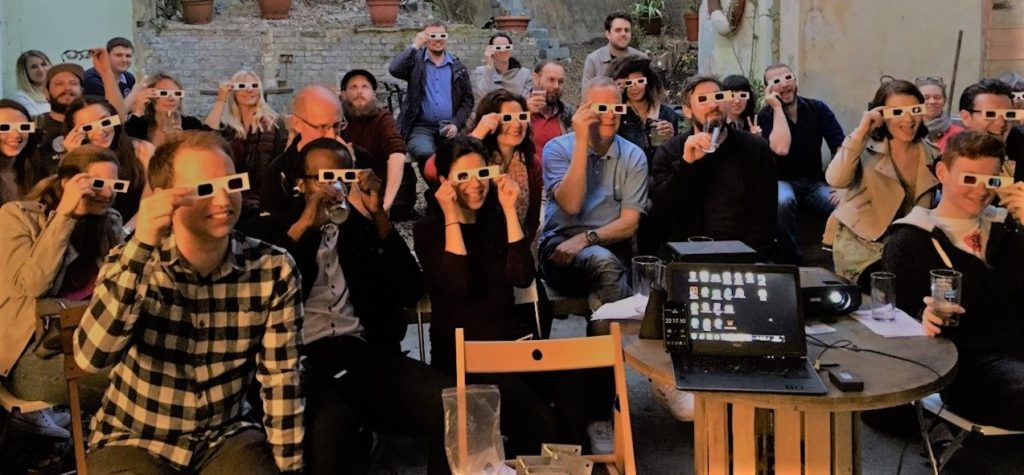
Friends, pints, 3D glasses, al fresco dining — this Pint of Science talk has it all!
Cenosillicaphobia — it’s the fear of an empty beer glass. And agnosiophobia? It’s the fear of not knowing something.
Well, dear friends, we’re about to solve all of your empty-glassed, muddle-brained fears. Introducing … Pint of Science — a three-day festival that brings scientists out of labs and into your local.
From 20-22 May, scientists will descend upon pubs across Australia. Why? To share stories about ground-breaking, earth-shaking science. Hear about space exploration, the secret life of moray eels and penguin poo power, all from the comfort of your pleather bar stool. And you? All you have to do is buy a ticket for $6 — happy news for those of us with champagne tastes on a beer budget.
Where? The good news is that Pint of Science is now held in 19 cities and towns across Australia, with 154 events. Our pint overfloweth! This is pretty remarkable, given that there was only one city and six events in 2014. There are 350 scientists speaking this year, and 24 are our very own. Here are our fabulous scientists, by state.
Queensland
Wet your whistle, Queenslanders! There are talks across the sunshine state, from Toowoomba, Brisbane, the Gold Coast and Noosa, up to Townsville and Cairns. So buckle-up, banana benders, and get ready for three days of science. Here are eight of our scientists speaking in Cairns and Brisbane.
Michelle Colgrave is omega-star
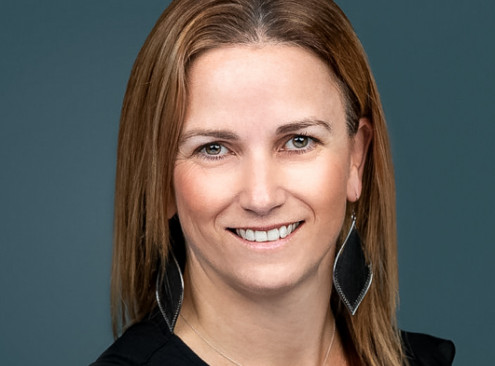 We seek out omega-3 oils for our heart and brain health. These oils are originally sourced from fish, but there are growing concerns about food security, fish stocks, and industrial fishing. So consumers are looking to alternative sources of omega-3 oils. Could we get these oils from plants? What is the science saying?
We seek out omega-3 oils for our heart and brain health. These oils are originally sourced from fish, but there are growing concerns about food security, fish stocks, and industrial fishing. So consumers are looking to alternative sources of omega-3 oils. Could we get these oils from plants? What is the science saying?Cathy Robinson is all for Indigenous and women-run science
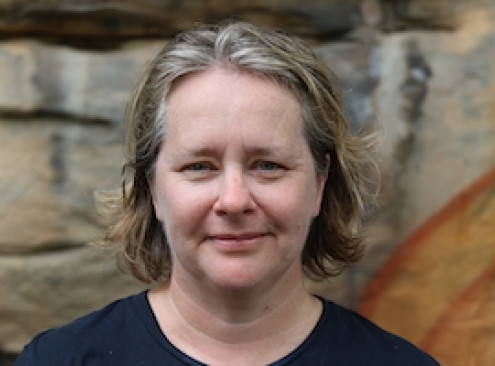
Do you want to hear about Indigenous-led and women-led approaches to looking after Australia’s precious lands and waters? You’re welcome! In this talk Dr Cathy Robinson will reflect on our Indigenous-led research project in Kakadu National Park, a unique World Heritage Area.
Cathy is a STEM Superstar. She’s the leader of the Northern Oz Women Science Entrepreneurship program. She’s a facilitator of the Indigenous Innovation Alliance. And she leads research projects tackling a range of environmental issues across Northern Australia. Verse up on diversity: buy tickets to Cathy’s show in Brisbane.
Christian Redd wants to know how you wiggle
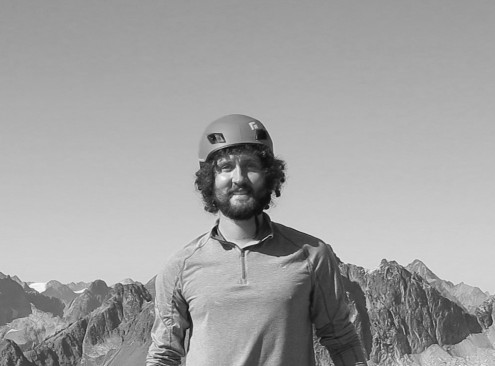
Measuring how our brain develops is tricky business. It’s even trickier when we try to diagnose potential disorders in infants and young children. Brain tests usually involve a visit to the clinic, a team of specialised health professionals, and diagnostic machines that could fill a room.
But instead of looking inside the brain for answers, what if we started by looking at something at hand: the tips of our fingers down to the wiggling of our toes? Wiggle your way to Christian talk in Brisbane.
Josie Carwardine can help us make good decisions for nature
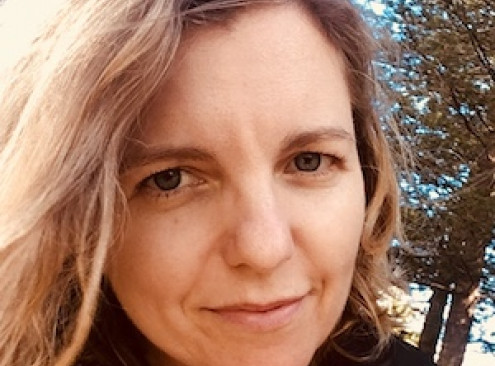 Nature is complex. And making decisions about how we look after (manage) nature is equally tricky — you have to consider all sorts of values, from environmental to economic, social and cultural. There’s no Magic 8 Ball when it comes to conservation.
Nature is complex. And making decisions about how we look after (manage) nature is equally tricky — you have to consider all sorts of values, from environmental to economic, social and cultural. There’s no Magic 8 Ball when it comes to conservation.
Luckily Dr Josie Carwardine is here to guide the way! She wants us to make better decisions about how we manage iconic areas in Australia and Indonesia. How? Using science. Magic. Make a good decision — buy tickets to Josie’s Brisbane show.
Ryan Steindl’s knowledge on ultralight legged robotics is heavy
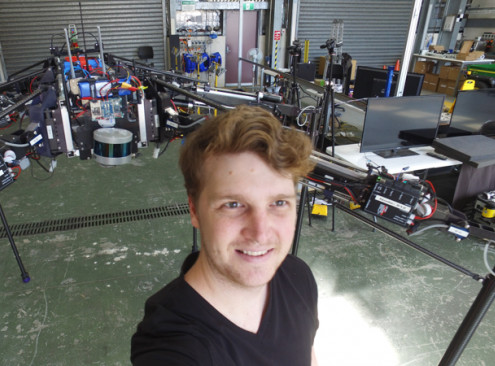
Robots aren’t intergalactic anymore: they’re fast becoming a part of our lives.
Join us, as Ryan Steindl from our robotics group answers the question: how do you build a robot that can survive in the Amazon rainforest? Can we create a robot that can effortlessly traverse swamps, rainforests and other ‘unstructured terrains’. Hint: the answer involves robots with ultralight legged locomotion (say that seven times, fast).
Get your personal robot to buy a ticket to Ryan’s Brisbane show, and find out what innovative ways we’re using robots to help our farmers and astronauts.
Jason Whitfield’s anti-doping research is … dope
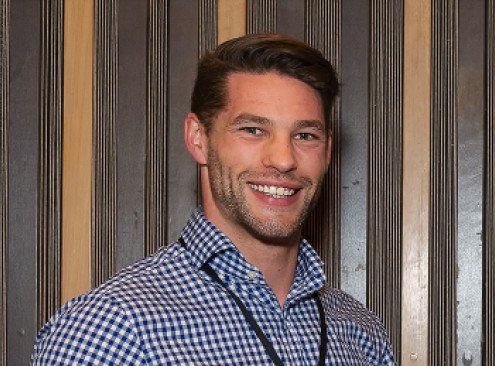
Have you heard of Synthetic Biology before? Jason Whitford is here to talk about using Synthetic Biology to create diagnostics for sport anti-doping and high performance. How can re-purposing and re-engineering biology help us to solve some big problems, especially in sports doping.
Dr Whitfield is a one of our Synthetic Biology Future Fellow focusing on developing methods to enable the real-time tracking and monitoring of almost any molecule inside cells or in bodily fluids. He was awarded 3rd place in the 2018 Falling Walls Australia awards. Upcycle your knowledge: buy tickets to Jason’s show.
Claire Naughtin is a slayer … of myths about work
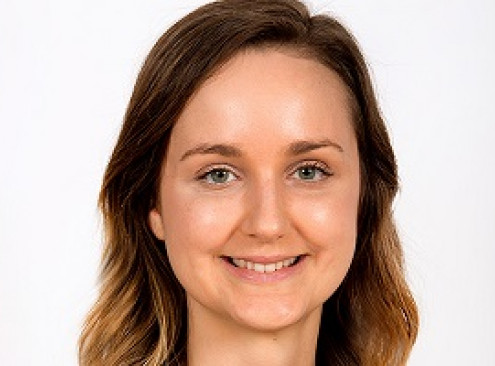
Hands up if you’ve heard “65 per cent of kids in primary school today will end up working in jobs that don’t exist yet.” There’s a lot of commentary about workforce changes. But what’s fact, and what is fiction? When it comes to myths about work, Dr Claire Naughtin slays. This Pint of Science, she’ll present some trends we see shaping jobs and employment in Australia. She’ll present evidence to dispel some of the common beliefs/fears around future changes in the workforce, especially around technology. At Data61, Claire conducts future-focused research projects, and she’s passionate about bridging the gap between research and real-world application. Buy your ticket to the future.
Brendan Ebner is eely knowledgeable about eels (Cairns show)
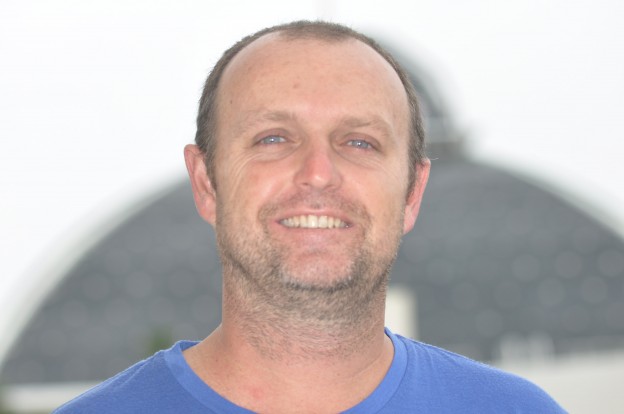
“When you’re in the sea, and a fish bites you knee, that’s a moray!” Let us take you on an adventure — part science, part obsession — focused on the only known moray eel to live in freshwater. Where does it go? What does it eat? How does it outperform a Level-7 yoga instructor? Yep — all the big questions! Dr Ebner’s work focuses on the ecology, behaviour and conservation of rare and threatened fishes. He uses remote cameras and snorkels, and is interested in societal interactions with fish. Amore science? Buy tickets to the Cairns show.
New South Wales
New South Welshpeople: the talks listed below are all in Sydney. If you’re in Armidale, Newcastle or on the Central Coast, Pint of Science is serving you up some science, too.
Sean O’Donoghue is a pro on proteins
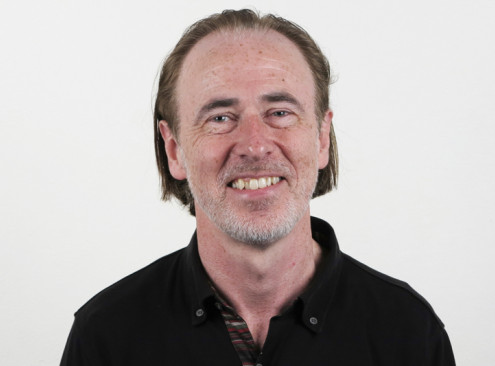 Protein. Delicious protein. Come and see an animation showing how a small set of proteins determine the basic body plan of all animals. Find out about the proteins that make up our bodies — surprisingly, nearly half of proteins have a structure and function that we know nothing about.
Protein. Delicious protein. Come and see an animation showing how a small set of proteins determine the basic body plan of all animals. Find out about the proteins that make up our bodies — surprisingly, nearly half of proteins have a structure and function that we know nothing about.
Prof. O’Donoghue uses advanced visualisation methods to explore complex molecular datasets. The goal? To reveal new insights and discoveries that advance biomedicine. If you want to see science on the big(gish) screen? Buy tickets to Sean’s Newtown talk.
Jamie Stevens just wants some space (science)
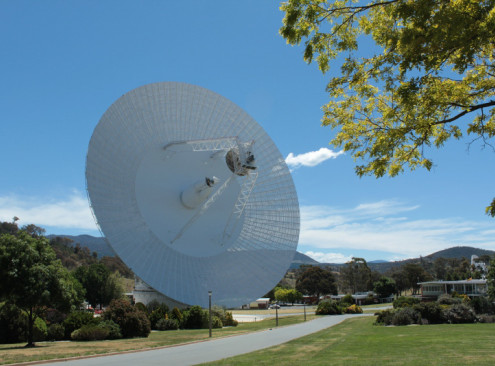 Sticks and stones may brake our bones, but an asteroid … well, it’ll probably hurt us. Australia will soon play a key role in monitoring potentially hazardous asteroids that can only be seen from the Southern hemisphere. What telescopes do we have, and what methods will we use to work out which bits of rock might, um, hit us.
Sticks and stones may brake our bones, but an asteroid … well, it’ll probably hurt us. Australia will soon play a key role in monitoring potentially hazardous asteroids that can only be seen from the Southern hemisphere. What telescopes do we have, and what methods will we use to work out which bits of rock might, um, hit us.
Dr Stevens’ job is to make telescopes work. He looks after our Telescope Compact Array and Long Baseline Array. Get spaced out, buy tickets to Jamie and Robert’s Sydney show.
Robert Hollow knows what’s up
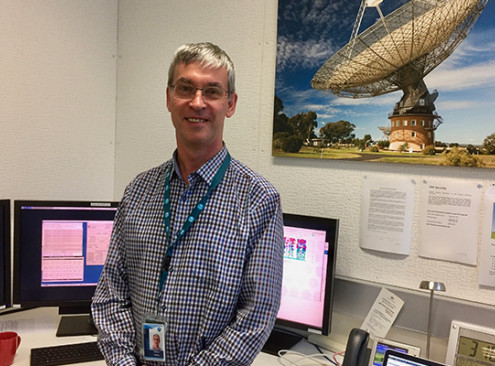 Did you know that CSIRO was involved in Apollo 11? Hear about our proud history, and our new space projects, including NovaSAR, our new Earth Observation satellite and our plans for future technologies, the return to the Moon, and on to Mars. Mars!
Did you know that CSIRO was involved in Apollo 11? Hear about our proud history, and our new space projects, including NovaSAR, our new Earth Observation satellite and our plans for future technologies, the return to the Moon, and on to Mars. Mars!Robert Hollow is the Education Specialist with CSIRO Astronomy and Space Science. He heads the PULSE@Parkes program and is a member of the Breakthrough Listen project. Make room in your week for space: head to Robert and Jamie’s talk in Sydney.
Richard Nock wants you to learn about machine learning
Machine Learning is the engine of data science, from which models are built, predictions are made that virtually influence almost everybody’s life. Many people are keen on the image that there is currently a Cambrian explosion for Machine Learning because of the spectacular pace of research and innovation it enjoys. If that really is the case, then what should we expect to see? Join us in Sydney as Richard Nock presents some possible answers.
Australian Capital Territory
Bar flies of our nation’s capital, rejoice! You have a tasty line-up of scientists in pubs around Canberra.
Madeline Mitchell is ironing out the need for ironing
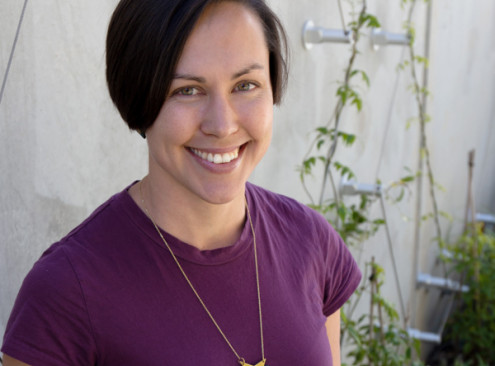 Hate ironing? You’ll love this! Imagine genetically engineering plant-based fibres to enhance their properties and create biodegradable, renewable alternatives to plastic-based artificial fibres. How about a new form of flexible, no-crease cotton? Dr Madeline Mitchell has some fibrous facts for us. She’s a plant molecular physiologist interested in understanding the way plants respond to their environment. She’s also a Superstar of STEM and travelled to Antarctica as part of Homeward Bound, a global leadership initiative for women in science. Increase your knowledge at her talk in Canberra.
Hate ironing? You’ll love this! Imagine genetically engineering plant-based fibres to enhance their properties and create biodegradable, renewable alternatives to plastic-based artificial fibres. How about a new form of flexible, no-crease cotton? Dr Madeline Mitchell has some fibrous facts for us. She’s a plant molecular physiologist interested in understanding the way plants respond to their environment. She’s also a Superstar of STEM and travelled to Antarctica as part of Homeward Bound, a global leadership initiative for women in science. Increase your knowledge at her talk in Canberra.
Amy Paten wants the world to bee healthy
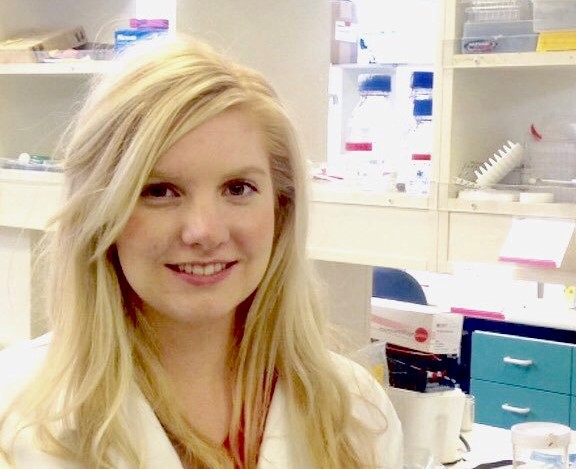
About 30 per cent of all food is produced because of insect pollination. The European honey bee is responsible for about 80% of this. But the health of honeybees is under threat. Find out about how Dr Amy Paten is using cutting edge genomics-based technologies to create a honeybee health index, that we can use to understand and manage the causes of colony collapse. Dr Paten is a Systems Biologist with our Land and Water team. She wants uses changes in genes, proteins and metabolites to understand how contaminants and environmental conditions affect animal and ecosystem health. Hive off some time to learn about bees at Amy’s Canberra show.
Jacqui Poldy has a thirst for mozzie research
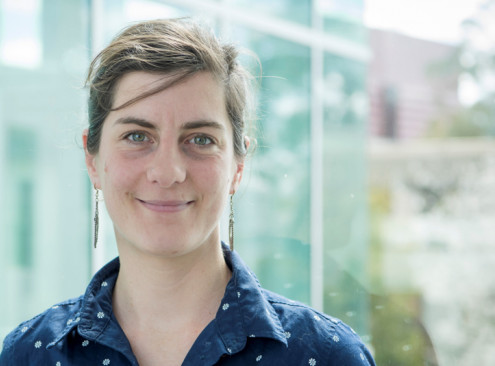 They may be minuscule, but mosquitoes are considered the deadliest animals on earth. Mosquito-borne diseases like malaria kill more than 700, 000 people per year. In her show, Dr Jacqui Poldy will look at whether mozzies prefer humans or other animals and how they choose and find their favourite meal.
They may be minuscule, but mosquitoes are considered the deadliest animals on earth. Mosquito-borne diseases like malaria kill more than 700, 000 people per year. In her show, Dr Jacqui Poldy will look at whether mozzies prefer humans or other animals and how they choose and find their favourite meal.
Before she was mad about mozzies, Jacqui explored the chemical mimicry displayed by native sexually deceptive orchids. She left research to become a veterinarian, but was drawn back with the chance to combine her background in analytical chemistry and animal health experience. Take a bite of science: check out Jacqui’s mozzie talk in Canberra.
Trevor Rapson is teaching ancient material new tricks
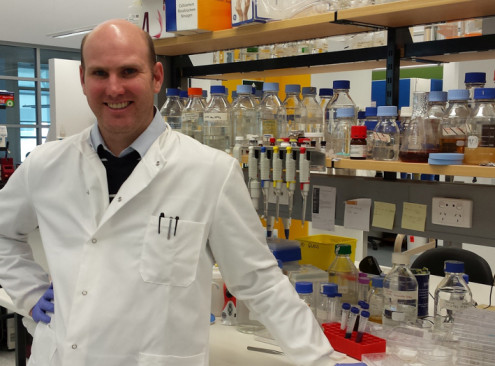
Just when you thought bees couldn’t be cooler, it turns out they produce a type of silk! Biotechnology is a branch of science that uses biological knowledge (honeybees make silk) to develop new processes and products. Dr Trevor Rapson is researching how a silk from honeybees can be used to create artificial metalloproteins. “What’s a metalloprotein?”, I hear you ask. It’s a protein that contains metal, and it’s used to achieve the highly sophisticated chemistry of life on Earth (e.g. haemoglobin, the iron-rich metalloprotein in red blood cells). Get those sweet honeybee facts at Trevor’s talk in Canberra.
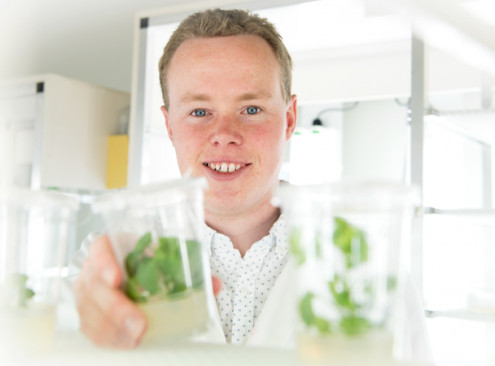
Kyle Reynolds’ research is oil in a day’s work
Have you seen the bright yellow fields of canola grown around Australia? Australia is the world’s second largest exporter of canola seed. Our annual export is often more than one million tonnes. Kyle Reynolds is working on improving the oil production of canola. Why? As our global population grows, so to does its demand for food … and oils. This demand has sparked research, like Kyle’s, that’s geared towards improving the performance of crops, namely canola. Learn about this liquid gold at Kyle’s talk in Canberra.
Victoria
Apparently, Victorians were once called ‘Cabbage Patchers’ because of the state’s small size. But there ain’t nothing diminutive about our scientists’ work. Our stellar scientists are ready to answer all your questions about digital bodies, food innovation and fantastic fibres.
Simon Harrison is digital body positive
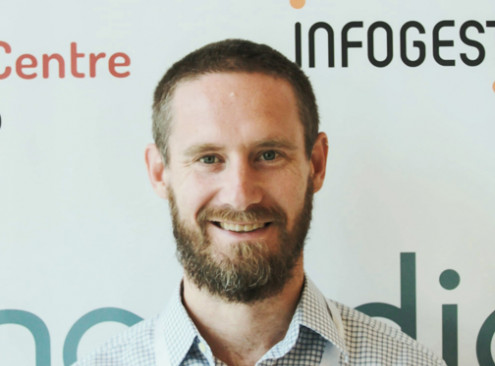 What if you could create a digital representation of your body that could help you improve your physical performance, preempt injury and disease, and assist in improving your future life? Now that’s something to talk about!
What if you could create a digital representation of your body that could help you improve your physical performance, preempt injury and disease, and assist in improving your future life? Now that’s something to talk about!Sieh Ng is hungry for tasty, innovative, and safe food
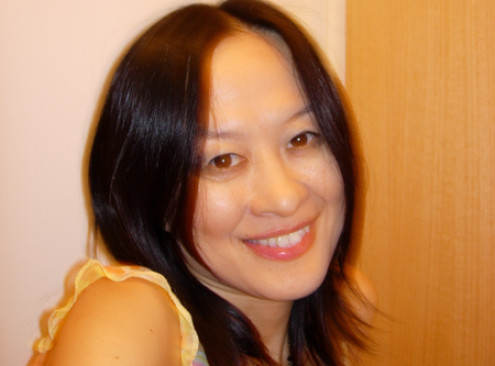 Have you ever heard of ‘hurdle concept’? Clue: it has something to do with food safety. Find out more in this interesting talk about how innovative technologies can help improve food product safety and deliver healthier and fresher food products.
Have you ever heard of ‘hurdle concept’? Clue: it has something to do with food safety. Find out more in this interesting talk about how innovative technologies can help improve food product safety and deliver healthier and fresher food products.
Sieh Ng is a food safety microbiologist who assesses food safety risks to consumers and improves food product safety. She has expertise in helping industry adopt technologies for the production of fresher and healthier foods. Hungry for more information? Buy tickets to Sieh’s talk in Melbourne.
Stuart Gordon is a fan of fibre (Geelong show)
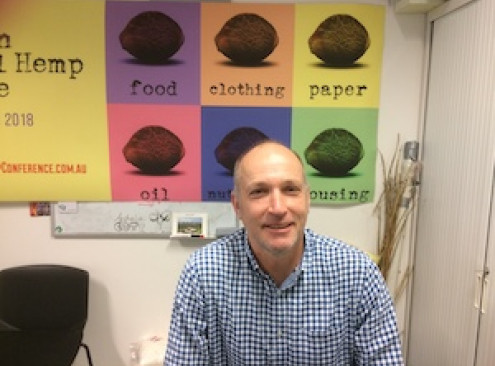 Natural fibres are quite incredible. Consider the coconut. It gives us so many things: food, clothing, paper, housing materials, delicious-tasting oil … and fibre. Australia is very good at producing large volumes of high quality, natural (plant and animal) fibres. What are the facts about the sustainability of this production? And what changes might we make? Dr Stuart Gordon is a Principal Research Scientist with our Agriculture and Food group. He has spent nearly 30 years researching natural fibres, including time working for and with textile manufacturers in Australia, USA, Germany and China. Find a common thread with Stuart at his Geelong talk.
Natural fibres are quite incredible. Consider the coconut. It gives us so many things: food, clothing, paper, housing materials, delicious-tasting oil … and fibre. Australia is very good at producing large volumes of high quality, natural (plant and animal) fibres. What are the facts about the sustainability of this production? And what changes might we make? Dr Stuart Gordon is a Principal Research Scientist with our Agriculture and Food group. He has spent nearly 30 years researching natural fibres, including time working for and with textile manufacturers in Australia, USA, Germany and China. Find a common thread with Stuart at his Geelong talk.Tasmania
If you reside in the Apple Isle, Pint of Science has got some sensational science speakers lined up for you! So rug up and come on down, Taswegians.
Andrew Lenton on a different kind of sea change
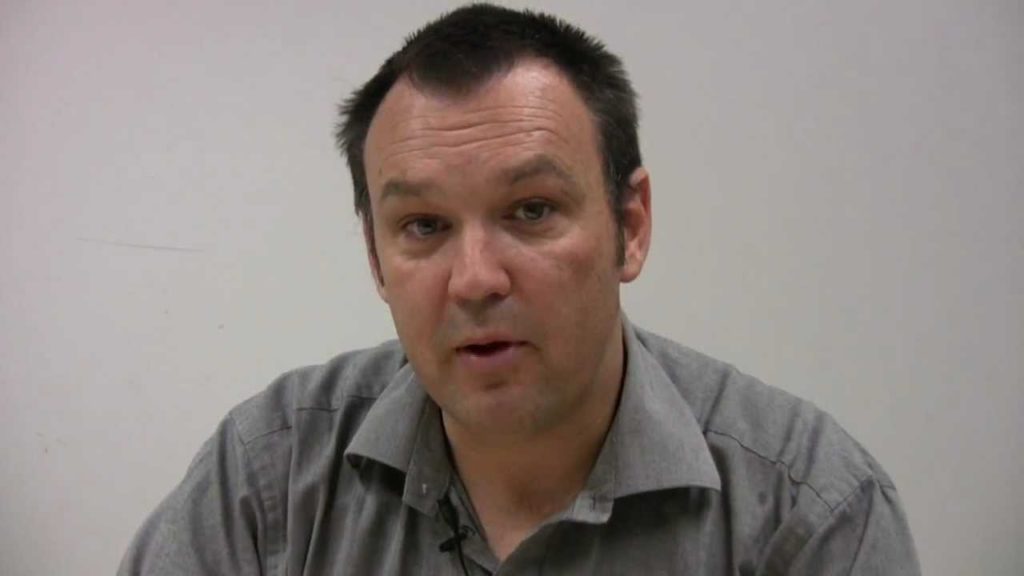 Take a plunge and delve into the mysteries of marine science. We all know that climate change has the potential to lead to significant shifts in the marine environment. But can we predict the future? In this talk, we’ll see different scenarios under different levels of climate change. Dr Lenton is an ocean carbon cycle modeller with our Climate Science Centre, and he’s a contributor the IPCC Reports. Dive a little deeper: buy tickets to Andrew’s show in Hobart.
Take a plunge and delve into the mysteries of marine science. We all know that climate change has the potential to lead to significant shifts in the marine environment. But can we predict the future? In this talk, we’ll see different scenarios under different levels of climate change. Dr Lenton is an ocean carbon cycle modeller with our Climate Science Centre, and he’s a contributor the IPCC Reports. Dive a little deeper: buy tickets to Andrew’s show in Hobart.South Australia
Defrost your potato fritters, unwrap a frog cake and order a pie floater, South Australians … it’s time to science.
Lynne Macdonald is dishing up the dirt on soil
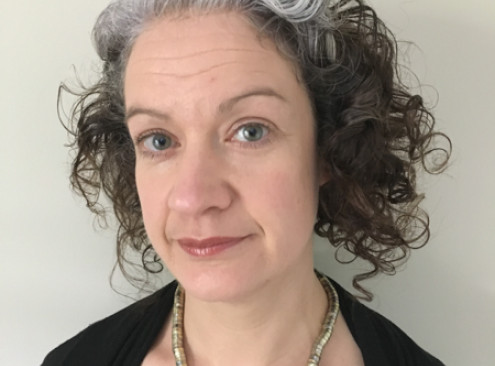
Western Australia
Sandgropers, unite. Show us how much you love science, and head along to Pint of Science, Perth.
Laura Kuhar is creating keyhole surgery … for mining
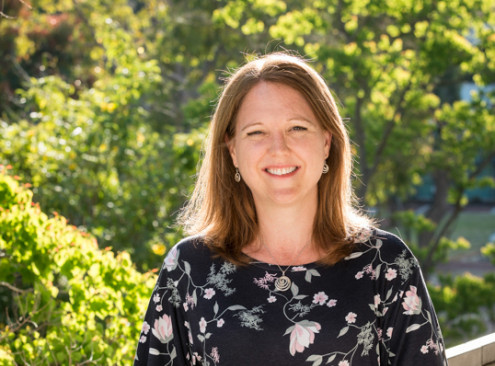 What is ISR? Think keyhole surgery for mining. Come along to find out more about in-situ recovery (ISR), what its advantages are, and what research is required before it can be implemented. Dr Kuhar is a hydrometallurgist and research team leader at CSIRO Minerals. She has over 17 years of research experience in the minerals processing industry. She was also selected for Science and Technology Australia’s ‘Superstars of STEM’. Drill down into the details: buy tickets for Laura and Mark’s show here. Bonus: This is an Auslan Interpreted Event.
What is ISR? Think keyhole surgery for mining. Come along to find out more about in-situ recovery (ISR), what its advantages are, and what research is required before it can be implemented. Dr Kuhar is a hydrometallurgist and research team leader at CSIRO Minerals. She has over 17 years of research experience in the minerals processing industry. She was also selected for Science and Technology Australia’s ‘Superstars of STEM’. Drill down into the details: buy tickets for Laura and Mark’s show here. Bonus: This is an Auslan Interpreted Event.Mark Pearce is x-cited about rocks
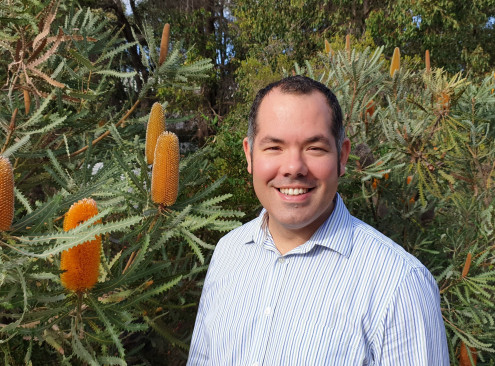 Australia has lots of ore deposits but finding them is a challenge. Could high power X-rays and atom-scale maps help? Hear about some of the latest tools explorers are using to help uncover the next big prize.
Australia has lots of ore deposits but finding them is a challenge. Could high power X-rays and atom-scale maps help? Hear about some of the latest tools explorers are using to help uncover the next big prize.
Dr Pearce is a geologist from the UK who uses high power microscopes to answer fundamental questions about the history of rocks. Since 2012 he has been using this knowledge to help Australian mineral explorers find and understand their ore deposits. Drill down into the details: buy tickets for Mark and Laura’s show here. This is an Auslan Interpreted Event.
Northern Territory
Sorry, Top Enders none of our scientists are speaking in Darwin, but the festival has lots of other great speakers coming your way. Check out the full list of shows in your city.


11th May 2019 at 7:13 pm
I think Dr Vatta is exceptional. This may not be in line with the scientific impartial requirement of the guidelines as I have a daughter who works at the CSIRO and may be embarrassed by her father’s comments :):):) In any case, forza CSIRO and STEM! May you carry on producing all the good work that you do.